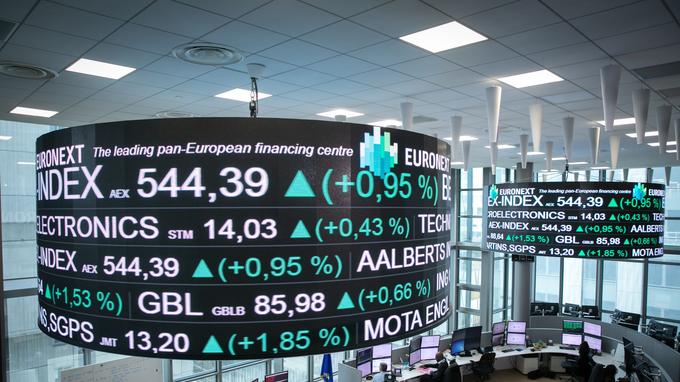In the first half of the year, markets held up rather well against the avalanche of bad news that hit the global economy. After a good start to the year, they went downhill with the health crisis. In less than a month, between February 21 and March 18, they plunged by around 40%. A fall of extreme brutality. The massive action of central banks and governments then caused a tremendous rebound. In Paris, the CAC 40 has regained more than 30% since its floor in March. In the first half, the flagship index of the Paris Stock Exchange finally limited its loss to 17.5%. On Wall Street, the Nasdaq, the index of large technology stocks, has posted an increase of almost 18% since the beginning of the year, and is breaking from record to record.
The increase seems to be running out, however
However, for several weeks, the increase seems to be exhausting. "To go higher, the markets need fuel again," said Jean-Jacques Friedman, chief investment officer of Natixis Wealth Management. They will carefully scrutinize the half-yearly results of the companies, which will spread throughout the summer. "We already know that the profits of the second quarter will be catastrophic," says Daniel Morris, strategist at BNP Paribas AM. Investors will therefore be mainly interested in the speeches of leaders. “The resurgence of the pandemic in the United States and Latin America is a major concern for investors. They will therefore be very attentive to companies' comments on this point, ”says Wilfrid Galand, director strategist at Montpensier Finance. "The cyclical stocks that give the pulse of the economy will be particularly in the sights of investors, as well as financials, where we fear an increase in bad debts", adds this professional.
The economic and political agenda is also very busy until the end of the year. The first highlight is expected as early as next week. A summit will physically bring together the leaders of the European Union in Brussels on Friday 17 and Saturday 18 July. Officials of the 27 countries of the Union will try to find an agreement on the implementation of the vast recovery plan of 750 billion euros, the principle of which was implemented at the end of May. The financial stake is colossal. If the summit ends in an agreement, it would lay the groundwork for a more integrated and federalist Europe than today, which should be appreciated on the stock market. The European recovery plan is a clever cocktail of grants and loans, most of which must be pooled. Part of these sums would thus - and for the first time - be borrowed on behalf of the European Union on the markets, breaking the taboo of the common debt. The summit is also to debate a series of subjects, including the budget of the European Union for the period 2021-2027. "The files on the table are very numerous and if it is difficult to envisage a total success of the negotiations, there will necessarily be progress, which should stimulate the markets," hopes Wilfrid Galand.
Unlimited central bank support
At the end of the summer, another meeting is eagerly awaited: the traditional Jackson Hole central bankers' symposium, on August 27 and 28. Because of the pandemic, which is still galloping in the United States, this great mass which is usually held in Wyoming will be mainly by teleconference. The issue is crucial for the markets. "Investors will know if they will be able to count on the unlimited support of the world's major central banks for a long time to come," explains the strategist at Montpensier Finance.
The main deadline for the markets, however, remains the US presidential election in November. With the health crisis, Donald Trump has tumbled in the polls and the markets now anticipate a clear victory for Democrat Joe Biden. So far, the policy of the Trump administration has been rather favorable to actions. "The markets may not appreciate an overly broad democratic victory, synonymous, in particular with a tax hike," said Jean-Jacques Friedman, at Natixis Wealth Management. "The regulations should be made tougher for the tech giants, which could weigh on this sector, which has been the main driver of the Wall Street rebound in recent months," adds Wilfrid Galand.
For Daniel Morris, strategist, and Christophe Moulin, responsible for asset allocation at BNP Paribas AM, the main variable to watch, however, remains the progression of the Covid-19 pandemic. For the recovery period that is taking shape, they are betting in particular on raw materials (non-agricultural) and on emerging countries, and in particular on China, which should get out of the crisis more quickly. Caution remains advised and, like many professionals, they always give pride of place to gold in their portfolios.


/cloudfront-eu-central-1.images.arcpublishing.com/prisa/VD7ONLCZSZBRRLBARPIUKVHOXI.jpg)











